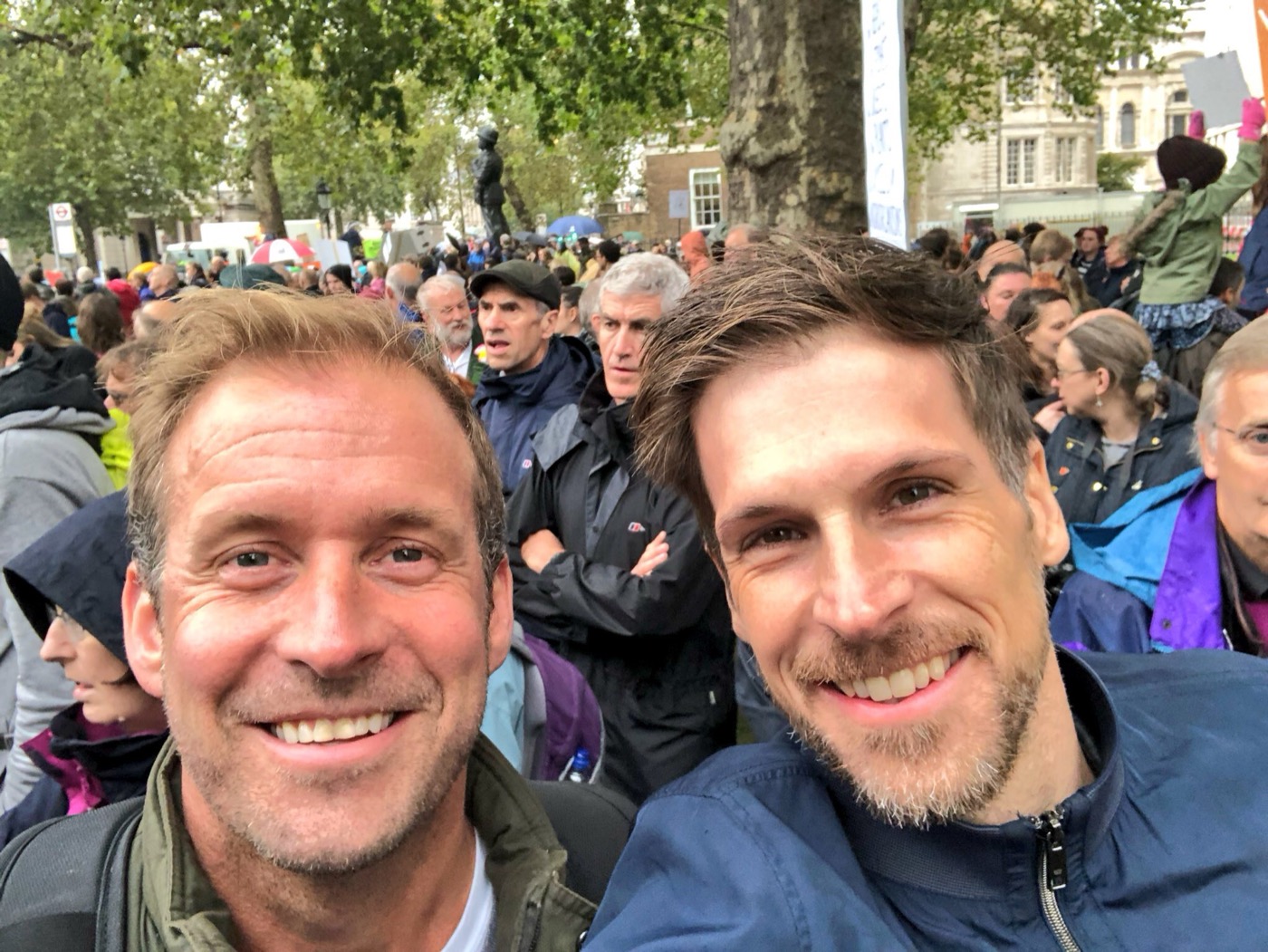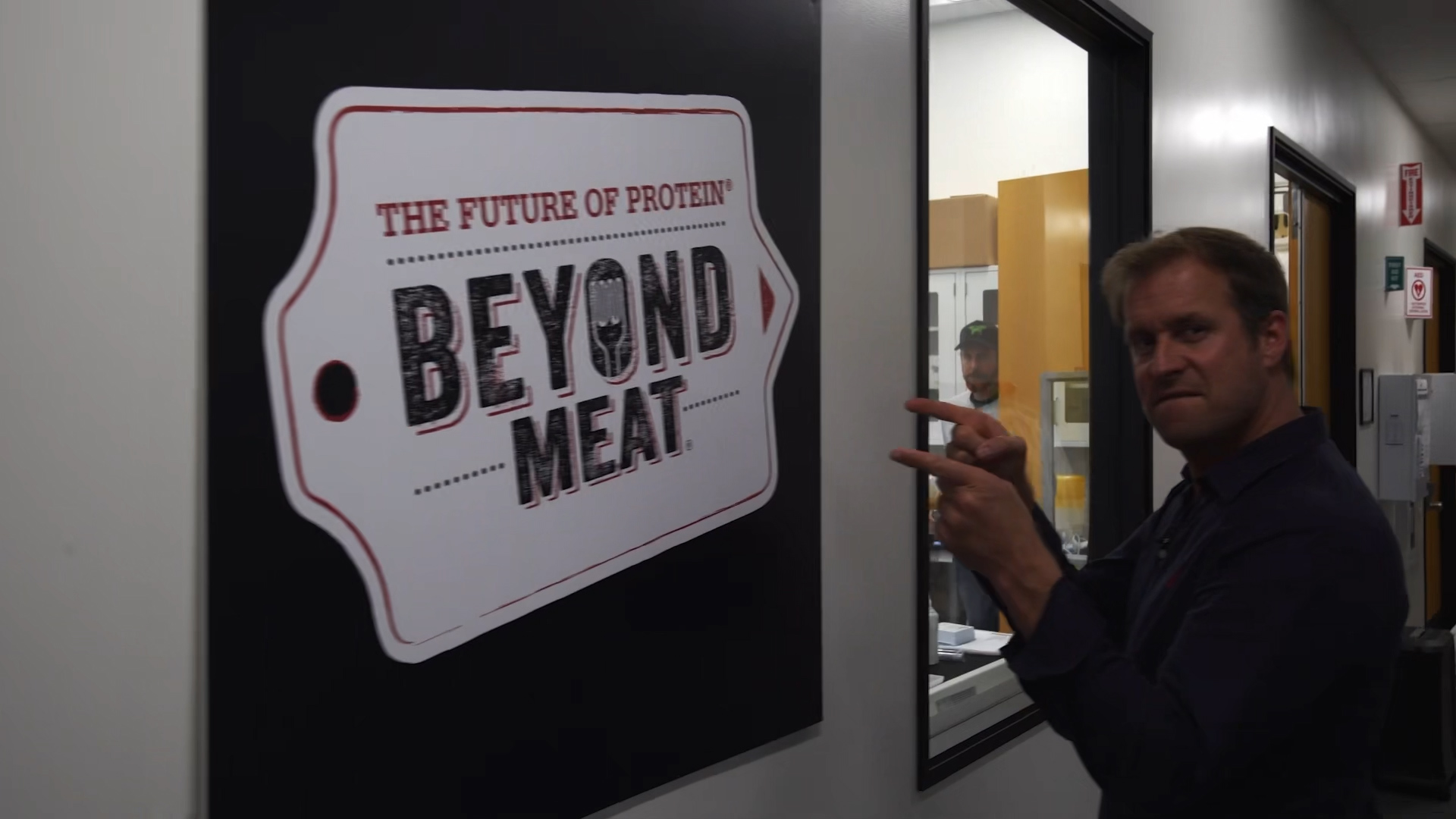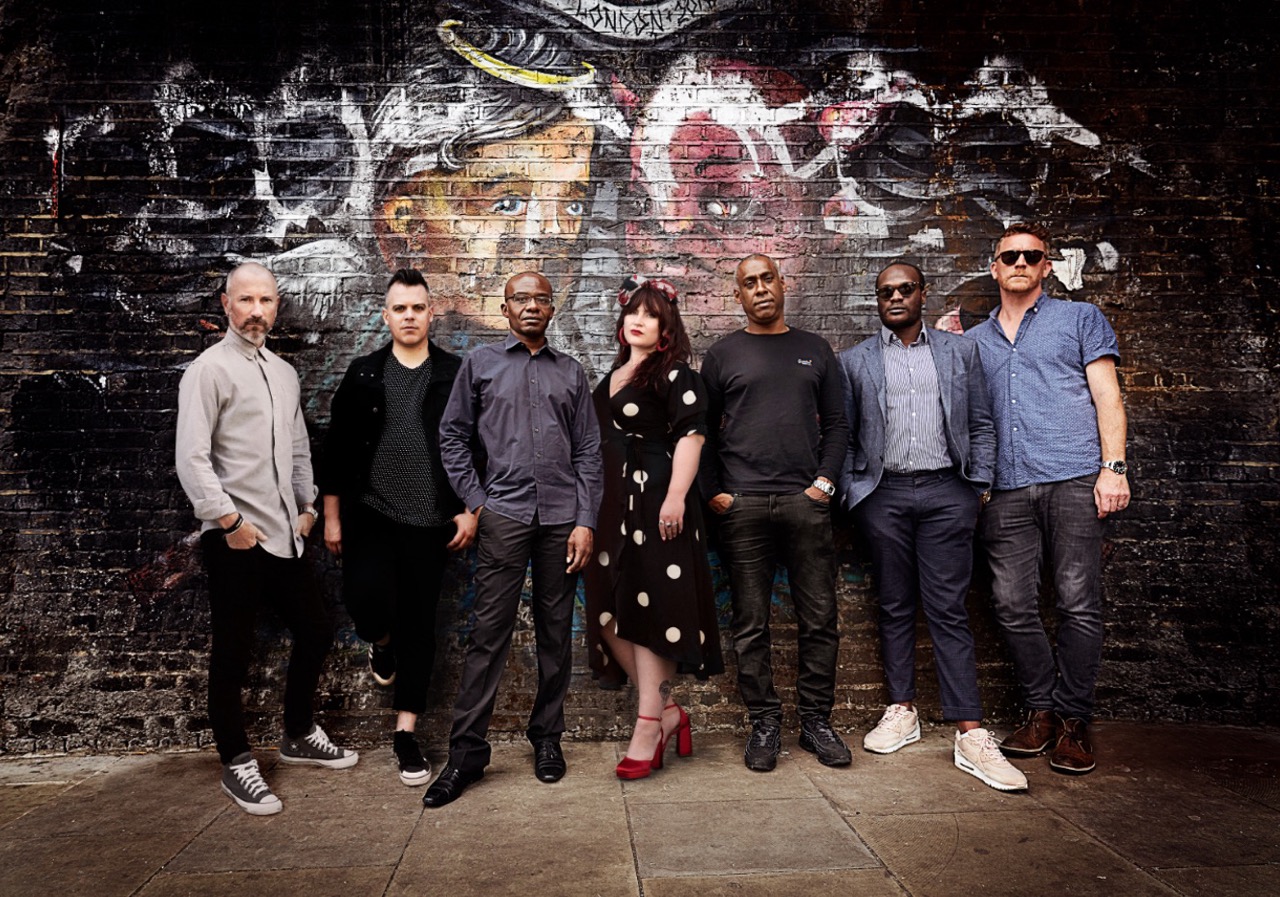In Food For Thought, actor-turned-director Dan Richardson takes audiences on a compelling journey through the heart of the global vegan movement. Co-directed with Giles Alderson, the documentary blends humor, heartfelt stories, and powerful activism to challenge perceptions and spark meaningful conversations about compassion, sustainability, and personal responsibility. In this exclusive interview, Richardson opens up about the inspiration behind the film, the emotional challenges of storytelling, and why making the documentary accessible to everyone was non-negotiable.
What inspired you and Giles Alderson to embark on a journey documenting the global vegan phenomenon, and did your work with the Born Free Foundation influence your perspective on this movement?
We’ve talked for many years about working together to create something meaningful, something related to a cause, we just needed an idea that we felt had wings. As soon as the idea occurred to us that that focus could be the vegan movement, it all just made sense. It started out based solely on the concept of a group of participants taking part in a 30-day vegan challenge and documenting that for us in the form of video diaries. The project really grew rapidly from there, so while the vegan participants still make up a key element to the film, it’s much more than that now.

Definitely yes, my involvement with Born Free not only shaped my perspective on the vegan movement, it inadvertently led me onto the path in the first place. I’d be standing on podiums, speaking out for animals on behalf of organisations like Born Free, and then I’d head off somewhere for a burger or a chicken sandwich. It hit me that to defend some animal but eat others was kind of ridiculous and extremely hypocritical of me. Fundamentally, I’ve developed a strong belief that compassion isn’t something we should reserve for some species and not for others, and my involvement with Born Free and subsequently my personal vegan journey has really helped reinforce that.
How has your experience as an actor shaped your approach to co-directing and capturing the authentic stories behind the vegan lifestyle?
Yes it has, primarily in the sense that, whether it be a fictional performance from an actor, or a director capturing someone’s real-life journey, in the end, what people respond to is a story. As an actor or as a filmmaker, the objective, ultimately, is to tell a story. Obviously the specific responsibilities differ for each, but in the end they both serve that same objective of telling a story and doing so as authentically as possible. That was something we had to keep in the forefront of our minds throughout the process of filming, and perhaps even more so during the edit. That’s where you’re really putting the pieces of the puzzle together in a way that tells a coherent story.
Food For Thought features a diverse range of voices—from animal rights activists to plant-based entrepreneurs. Which interview or story resonated with you the most, and why?
Oh man, that’s a tough one! Hard to pick one because they were all amazing in their own unique way. As a standout example though, to have Mate Rimac, a man whose livelihood depends on him creating and selling electric vehicles, literally saying that driving an electric car is great, but that people can have a much bigger impact on the world by reducing their meat consumption, that was pretty incredible. Such a powerful soundbite! That resonates deeply with me because it demonstrates that, no matter how big of a deal he is or how successful a businessman he is, he hasn’t lost sight of a more meaningful purpose which clearly drives him to a great extent. I really admire that.
But we also have the example of Claire who shares her extremely personal, health-related story, describing how her decision to go plant-based didn’t just change her life, it saved her life. That’s so inspiring, so profoundly meaningful it’s hard to even put it into words.
The film strikes a balance between humor and thoughtful reflection. Can you share a moment during filming that perfectly captured this blend?
Ah yeah you see I’m very lucky because as well as being a colleague and a co-director, above all Giles is a great friend, and our friendship has always involved a lot of laughing at ourselves. Basically just being a pair of douchebags and laughing at our own jokes. That could have gone really badly but it’s where the humour in the film came from. We’re just grateful (and very lucky!) that our goofing around seems to translate into relatable humour on screen…it could easily not have been the case and that would just be embarrassing! Anyway, the relevance of this is the fact that, with the exception of the scene where I’m watching slaughterhouse footage (so the audience don’t have to), we consistently had a good laugh throughout the entire process of making the film. So even when there’s deeper reflection and more serious subject matter being dealt with, we were able to enjoy the process as a couple of mates being fortunate enough to make a film together. Our job then became to find that balance between making the film more relatable and enjoyable by peppering it with that humour here and there, but at the same time respecting where it didn’t fit and not allowing it to minimise the issues which the film ultimately deals with. That’s a long-winded way of saying that the whole film is an example of that balance between humour and thoughtful reflection…or at least we hope so!
Your decision to release the documentary for free on YouTube speaks to a commitment to accessibility. What do you hope viewers will take away from watching Food For Thought without barriers?
This is going to sound like a deliberate play on words, but sincerely, what we hope the film will do is give people some food for thought, literally. That’s how the title came to be – we were discussing what we wanted the film to achieve and how we wanted to achieve that goal. The whole vibe of the film is built on a foundation of not being judgemental, of not vilifying people whose choices are different from ours. We aim to share a new perspective, or an existing perspective but in a new way, from that non-judgemental place and hopefully change a few minds along the way. Those underlying principles guided us throughout the filmmaking process. All those priorities like keeping it light, not showing graphic footage, not preaching, decent cinematography, nice music, all of it is done with the intention of taking away reasons why someone might stop watching the film. The next logical step in that same thought process was to make it as widely available as possible rather than sticking it behind a paywall and making it less accessible. Even if it went mainstream, we didn’t want to have to say, oh hey you can watch our film now, but only if you have a monthly subscription to whichever streaming platform. Our primary aim with Food For Thought is to get it out there and let it make a difference. Making it freely available was simply another logical move in line with that priority.
What were some of the unexpected challenges or surprises you encountered while filming a documentary that spans such a broad and evolving movement?
Covid! That brought filming to a complete halt for over two years. Having said that, the delay allowed us an unexpected, longer-term view on the whole vegan movement and where it was headed. We can’t claim this was by design of course, but it just so happens that we made the film right at what we can now confidently say was a tipping point for the vegan movement. Where it went from being marginalised to being a lot more mainstream. There’s no question that when we started filming we were still looking at the possibility of the vegan movement being more of a fad than an actual shift, but it’s fair to say now that it’s here to stay and becoming more and more prevalent in society. The extra two or three years the production took due to the pandemic has only reinforced that fact.
In your view, how is the vegan movement influencing our global conversation on sustainability and animal welfare, and what role does Food For Thought play in that discussion?
Great question. There are numerous challenges surrounding the ongoing discussion around sustainability and animal welfare. The biggest of these, in my view, is the deliberately engineered disconnect between what we eat and how it gets to our plates. The whole system is designed to put as much distance as possible between the end product and the reality that that product used to be a sentient being who wanted to live. That’s the way it is in our society. Before we’re even old enough to be making decisions or conscious choices, animal products are being put in our mouths by parents who’ve already been subjected to what’s to come for us. Even as children, by the time we’re developing our own beliefs and opinions, we’re already subject to conditioning by an industrial complex that absolutely normalises what in reality is mass exploitation and cruelty, all carefully hidden from view. Meaningless claims of ‘ethical’. ‘free-range’ and ‘organic’, smiling cows all over the packaging of dairy products, all mask a very different reality. Generations before us have been conditioned in the same way, so to step away from that takes a lot of free-thinking and, in many cases, a lot of courage. Thankfully that’s changing, but we’re still a tiny minority and that, I hope, will change too.

In parallel with this, and by no means a coincidence in my view, advocates for the cause have altered their approach over the years. Where more aggressive and even violent demonstrations used to be associated with animal activism, these days it’s much more a debate, a conversation, and progressing from the outskirts into the mainstream. Certainly there’s still a stigma attached to veganism, but much less though than in the past, and I believe in my heart that’ll continue to evolve and become more widely accepted and embraced. When you actually stop to think about what the vegan movement is, it’s bizarre how much resistance it meets. I’m confident that’ll change, and our hope is that Food For Thought becomes one more potential catalyst for people to start their own journey towards a plant-based future.
After traveling and engaging with so many diverse perspectives, what has been the most impactful lesson you’ve learned about the vegan movement, and how might that shape your future projects?
The greatest, and indeed most reassuring lesson I’ve learned in this process, is that even amongst those who appear to stand firmly in opposition to our movement, change is happening. I can’t tell you the number of times I’ve had someone standing against my cause, even laughing at me, only to then whisper on the way out the door that, joking aside, they too are eating less meat or flirting with the idea of cutting it out entirely. As for future projects, I believe the route to achieving our fullest potential is to come from a place of authenticity. In Food For Thought, that for us meant all the principles we’ve talked about like being non-judgemental and not sharing graphic imagery. By being authentic, it carries that energy with it and people feel and respect that. Whatever the next project is, whether it’s another documentary or a narrative feature, it’ll honour that same authenticity.







